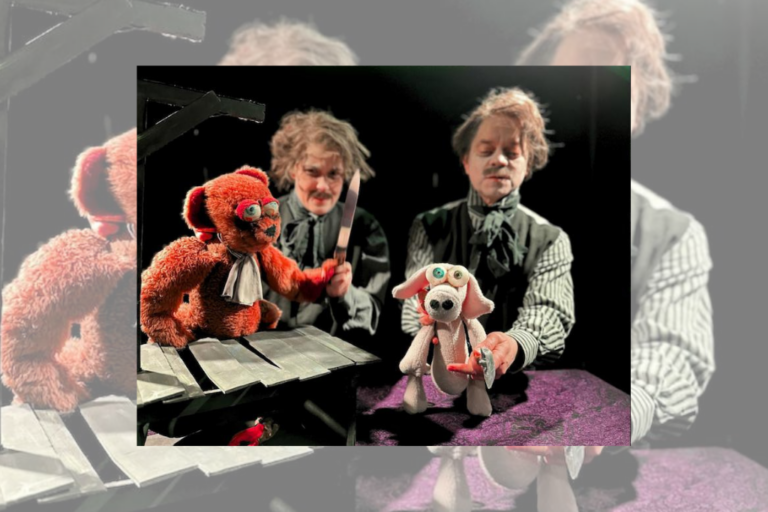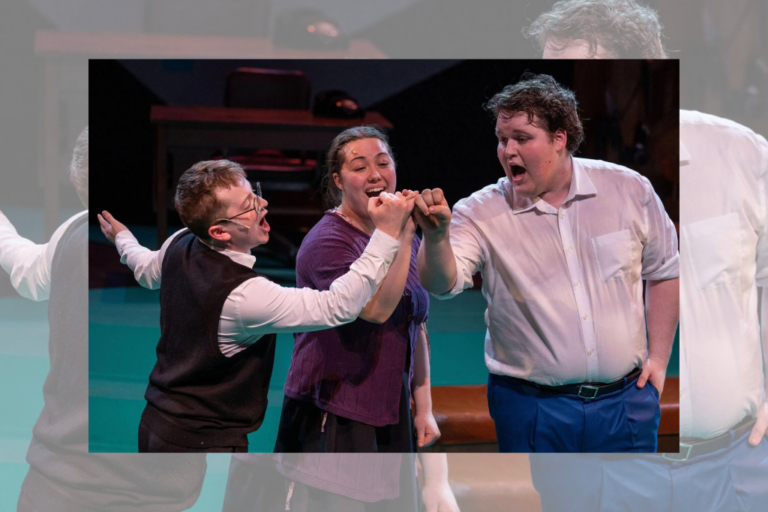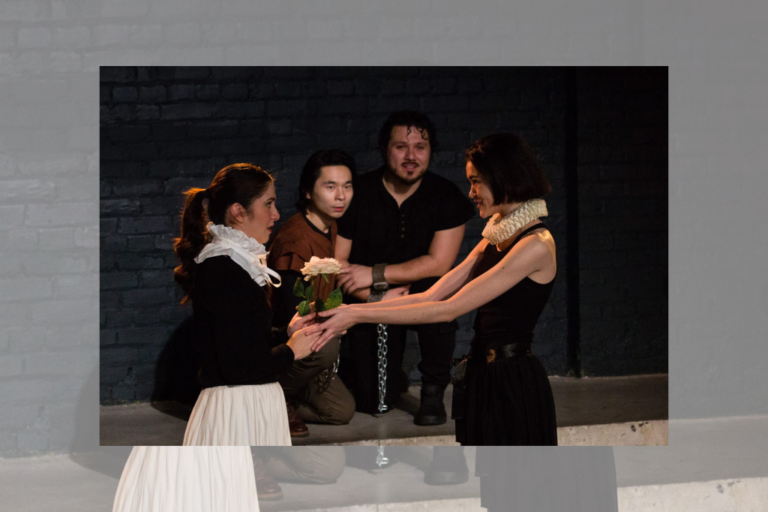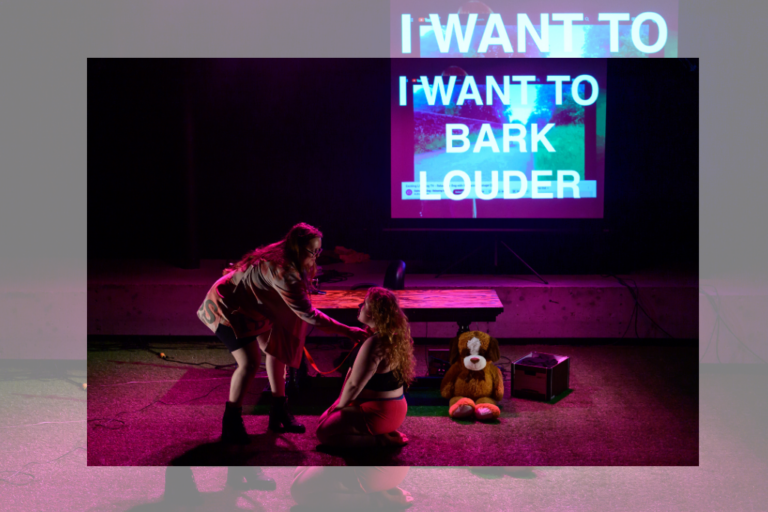REVIEW: Give ‘Em Hell is a fast-talking window into a tenacious teen protest in Peterborough
Riding on a yellow school bus from Theatre Direct’s main office in the Junction to the former Peterborough Collegiate and Vocational School (PCVS) seems an appropriate means of transportation to Give ‘Em Hell, Madeleine Brown’s pleasantly subversive play about a series of student protests that attempted to keep the school open when budget cuts threatened to close it in 2012.
The story’s end is a foregone conclusion (the school, downtown Peterborough’s only and oldest secondary school, has since become PACE, a facility offering alternative and continuing education), but Brown’s message about the importance of standing up for oneself regardless of the outcome is timely. As kids stage protests and lawsuits throughout North America about climate change, school shootings, and LGBTQ+ rights, the play also questions the fairness of ignoring the generation who will be the most affected by decisions made about them.
Watching the news, Grade 10 student Breaker (Jalen Brink) is horrified to hear that her safe space school, the one her recently-deceased grandmother attended, is going to be shuttered to save funds. Students will be scattered to other schools outside of the downtown core. She feels she owes it to her grandmother, with whom she shared a love of both PCVS and the Rick Mercer Report, to make sure future generations can continue to fill the halls. This leads the normally shy teen to take a leadership role in a student protest group, where she meets The Cat (Isabelle Siena), so named because of her role in last year’s school musical. They’re attracted to each other, but eventually diverge in their outsider versus insider approach toward helping their fellow students as they deal with a mostly dismissive board, one of whose members (Sarah Lynn Strange) even speaks in Charlie-Brown-adult-style unintelligibility to highlight its disconnect from the youth.
The school’s beautiful old auditorium and the site specificity adds charm to the show, as does casting age-appropriate high schoolers for the main roles. The effective set by designer Melanie McNeill is simple and full of clean lines, surrounded by banks of lockers. In the centre, a back wall and half-circle of a window sometimes slides forward to become a mental space, vantage point, or even a water tower. When school board officials fence out students, they hang a chain from curtain to curtain, giving the impression of a hybrid between a velvet rope and a prison.
Director-dramaturg Aaron Jan’s blocking effectively uses the cavernous depth of the stage, layering the large cast to more convincingly convey a fully-populated building. Unfortunately, that same depth leads to dialogue becoming more and more swallowed by the echoing space as actors stand further and further back. This means that it’s hard to hear some of the minor characters, sometimes for entire conversations.
Best at surmounting this obstacle is lead Brink, who carries well the role of a young woman finding her voice; that voice rings clearly and surely, matching those of the adults who try to shut her down. Breaker’s relationship with The Cat is nuanced and subtly explores the fear and joy of coming out as a part of becoming yourself. Siena also does nice work with a less straightforward character; her name, a reference to her skill in performance inside PCVS, contrasts with her extreme performance anxiety outside the school in a promising way that winds up never being fully explored. Another promising avenue, her relationship to the board member Clifford Barney (M. John Kennedy) who literally brings her on board, also remains mostly an idea, with a strong beginning backstory for him and a beautiful ending speech for her missing the connection in the middle.
Other performances of note include Lion Addison jumping with gusto into the role as Jace, Breaker’s brother, using an exaggerated surfer bro affect that’s entertaining in its incongruity with a setting where the only waves might come from the Otonabee River, and Jeff Dingle’s imaginary Rick Mercer, who dresses like a 1940s newsman and deliberately avoids any of the mannerisms of the original in counseling his young charge and eating chocolate bars. (Kennedy as the “real” Rick in voiceover does a credible impression of the celebrity to distinguish him from imaginary Rick.)
While all of these characters are fun, they highlight that Brown’s writing style is aggressively, almost self-consciously quirky, with unapologetic stretches of exposition. At the same time, this feels inventive, interesting, and a little exhausting, as each character is given some sort of outlandish trait, and quips pile upon quips, no matter which character is speaking. Similar to shows like Gilmore Girls, this style will appeal to some viewers and not others; it also demands a lightning-fast, television-style pacing that some scenes meet adeptly and others less.
Because the comedy demands our attention, it tends to overshadow the emotional impact of the story. That’s a shame, because when the emotions are highlighted, they are sharp and true. For example, a scene where Breaker breaks down in tears at the prospect that all the students’ efforts were for naught is affecting, simply because it is given the time to breathe rather than hurried along. Moments like these, when we get flashes of how special PCVS was and that it might actually, as the teens argue, “save lives,” make one want to get back on that school bus, ride it directly back to Queen’s Park, and give some politicians hell on behalf of the kids who shouldn’t have to.
Give ‘Em Hell runs at Peterborough Alternative and Continuing Education until September 23. Tickets are available here.
Intermission reviews are independent and unrelated to Intermission’s partnered content. Learn more about Intermission’s partnership model here.















Comments